Boris Arvatov.
Collected Works in Four Volumes
The collected works of a leading theorist of production art from the heyday of the Russian avant-garde.
The four volumes bring together nearly all of Boris Arvatov’s writings from 1923 and 1931, the years when the Russian avant-garde was in full flood. Arvatov’s radical idea was to understand art as a practical tool, which the artist applies in order to organise everyday life and production rather than to depict them. Seeking to break with the tradition of bourgeois art, which he viewed as predicated on an escape from reality, Arvatov declared that the artist, far from being a sacred figure dedicated to the painting of still lifes, portraits and landscapes, is a “qualified” engineer or craftsman who toils in the workshop to help solve the challenges that face society.
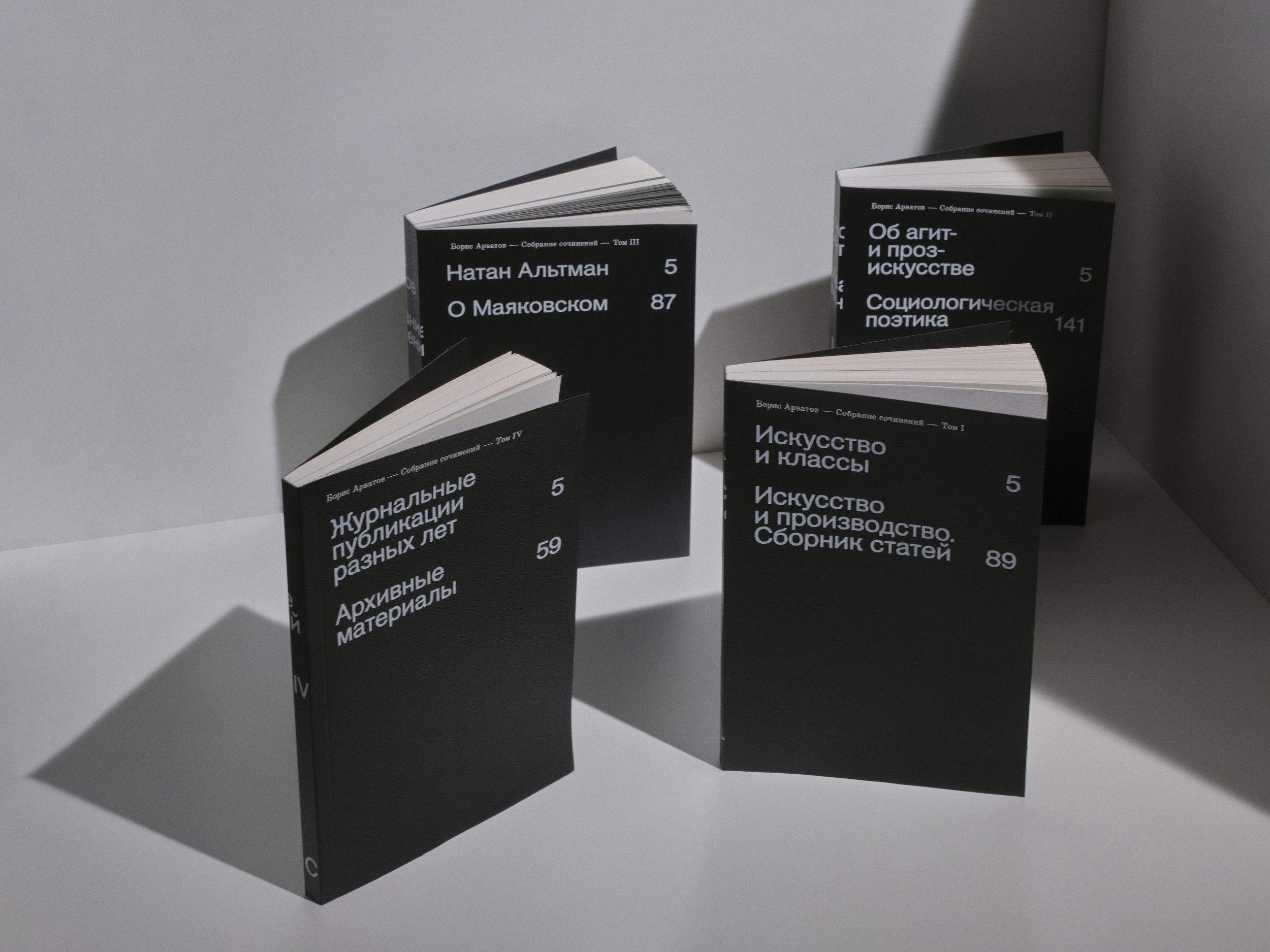
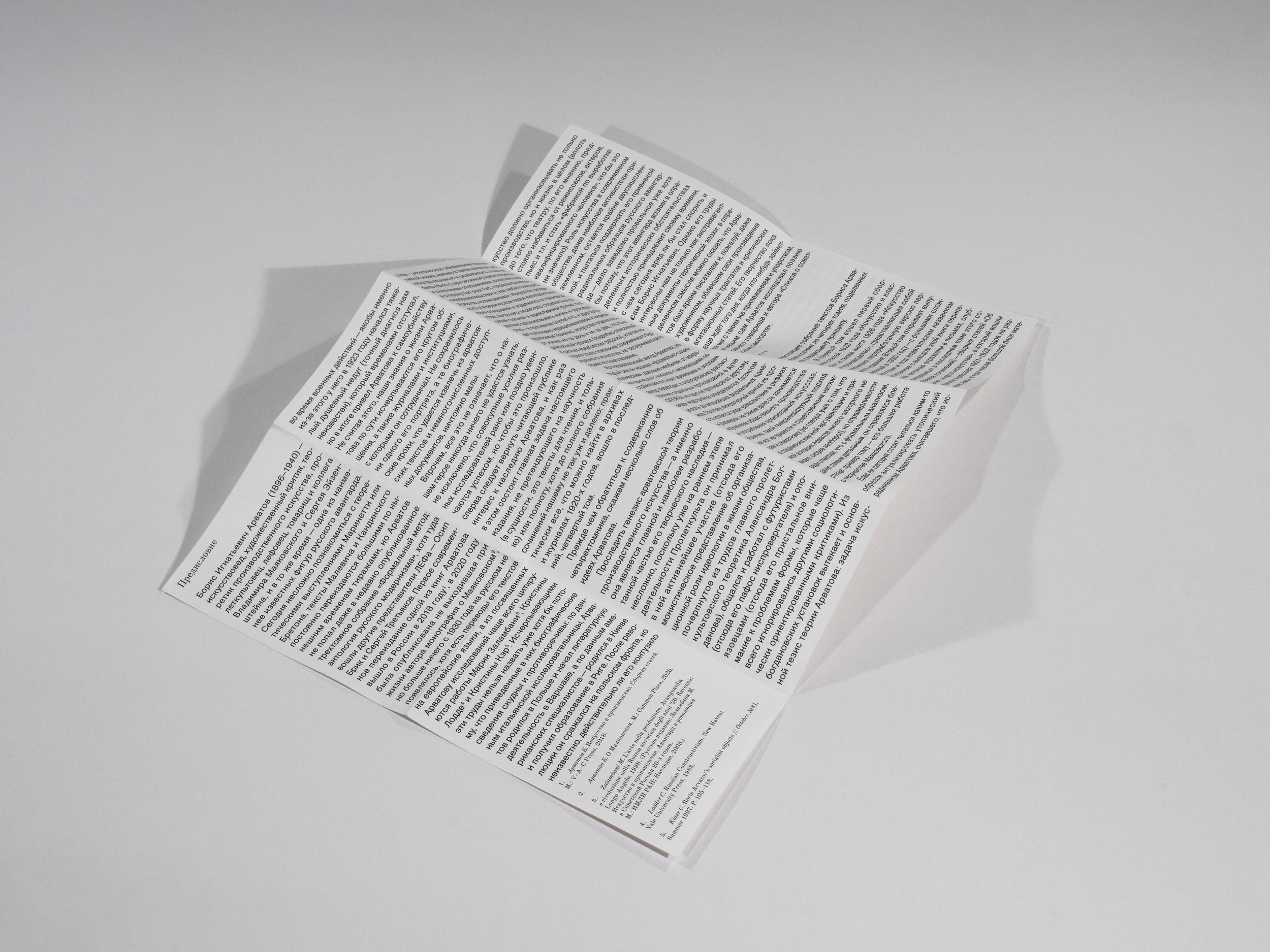
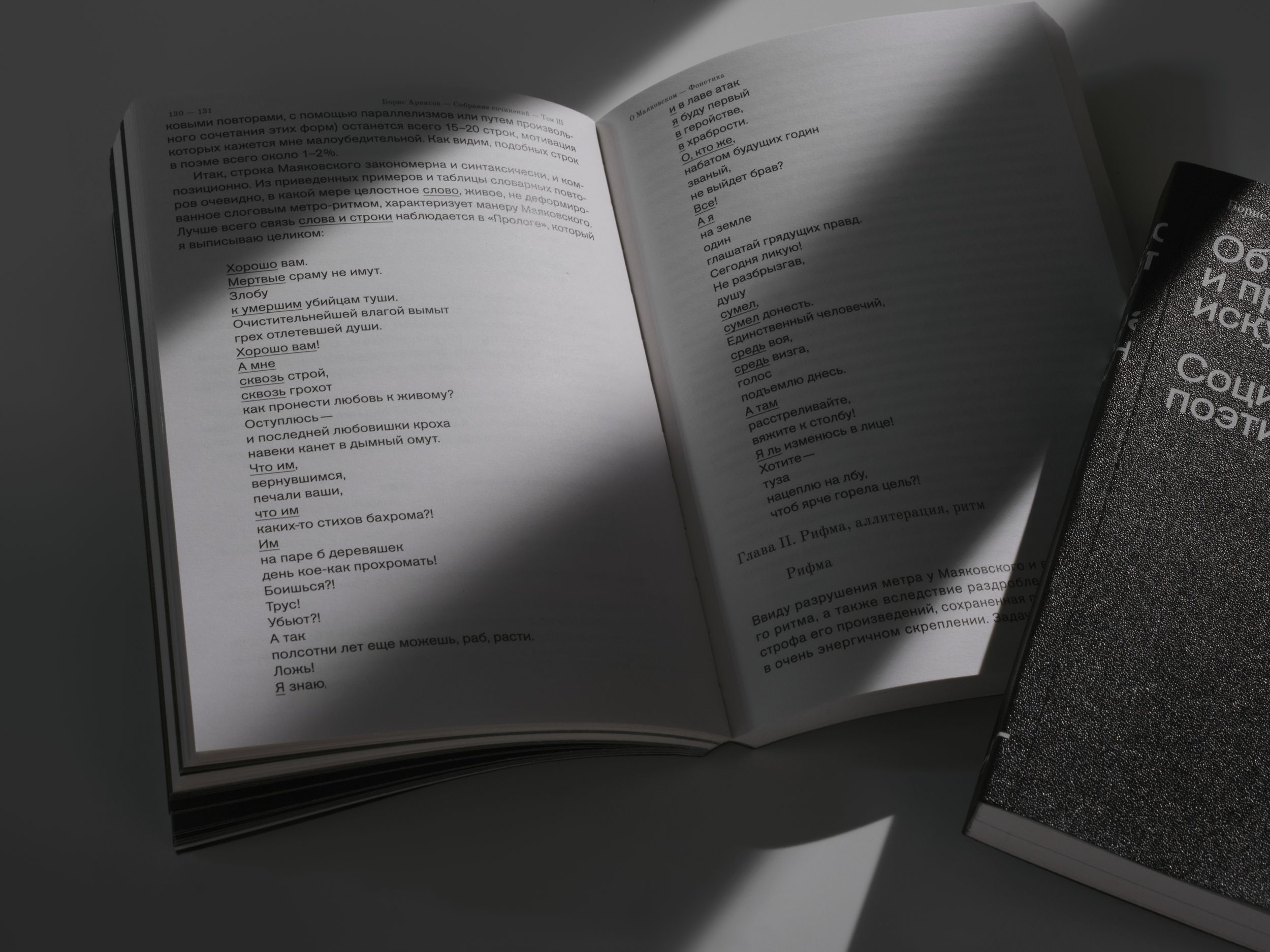
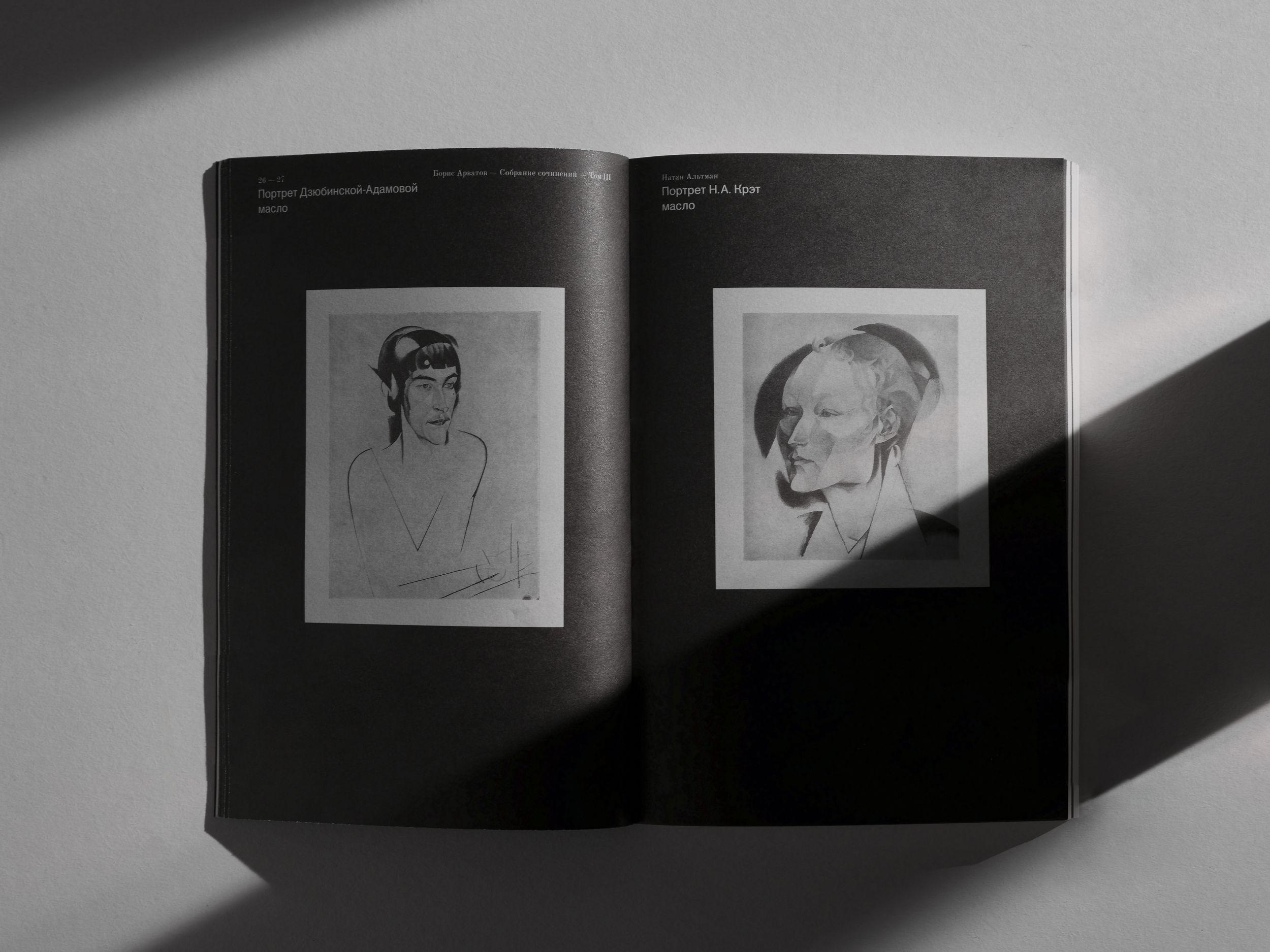
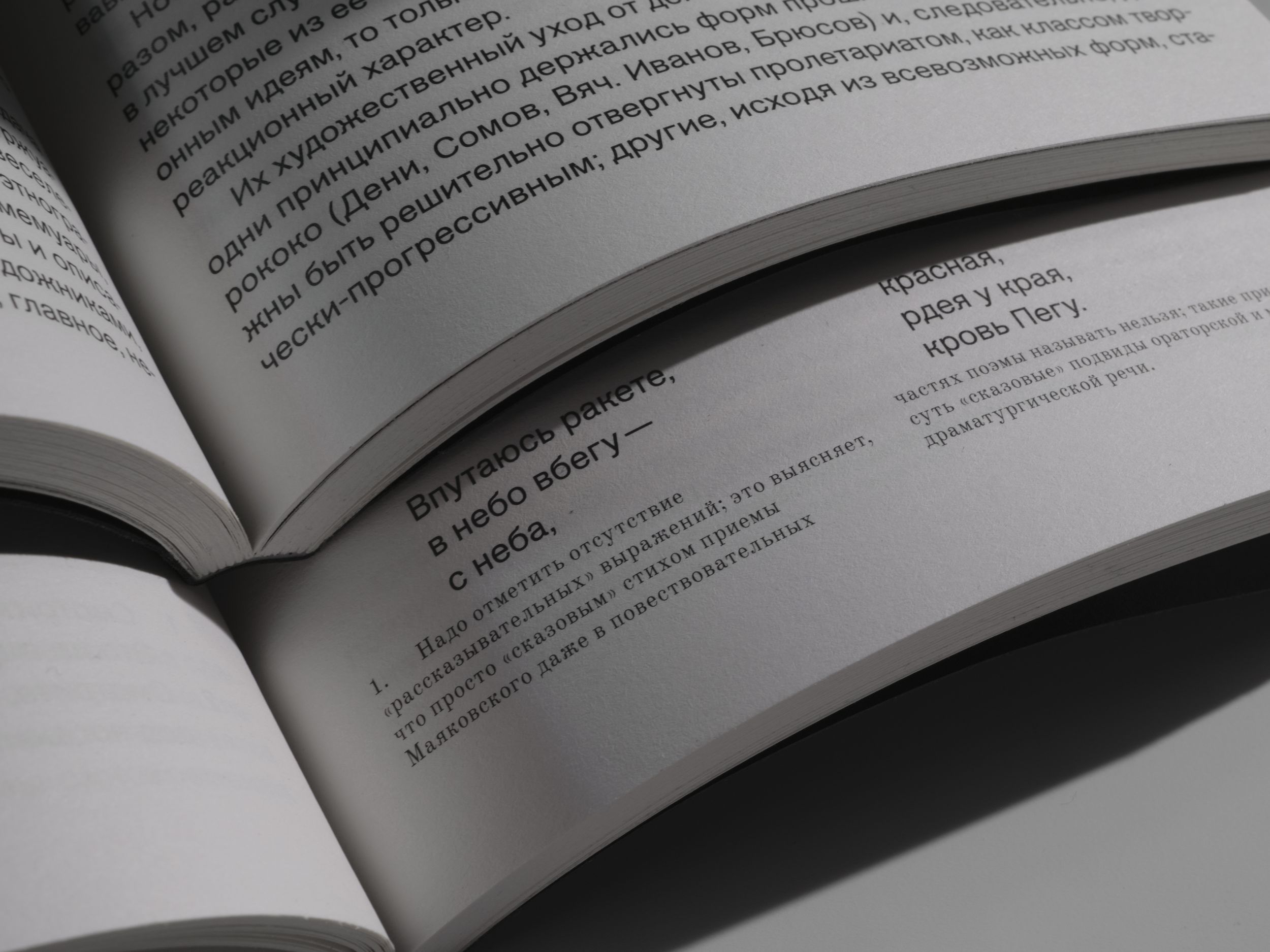
All photos: Ivan Ozerov
Boris Arvatov (1896–1940) was an art historian, art and literary critic, theorist of production art and one of the founders of the creative association LEF (Left Front of the Arts).
…The proletarians, having taken power into their hands, will not depict the body beautiful, but cultivate the real, living, harmonious human being; they will not paint the forest, but lay out parks and gardens; they will not decorate walls with mechanically arranged pictures, but paint those walls; not produce photograph-like simulations of costumes in paint, but make costumes in the workshop. The bourgeois classifications of genre painters, portraitists, and painters of still lifes will be redundant, and in their place we shall have metal-worker-artists, woodworkers, textile makers, electricians, friends and collaborators of their great class.
The first volume in the collection contains Arvatov’s articles brought together under the title Art and Classes (1923) and his book Art and Production (1926). Two more collections of articles, On Agit-art and Production Art (1930) and Sociological Poetics (texts written in 1923–1927), make up the second volume. The third volume includes studies of the artist Nathan Altman (1924) and the poet Vladimir Mayakovsky (1931) The fourth and final volume consists of texts published in various periodicals during Arvatov’s lifetime as well as archive materials, including letters written by Arvatov and by his father, Ignaty Arvatov, which shed light on the last years of the critic’s life.
Compiling editor
Ivan Aksenov
Executive editor
Grigory Cheredov
Design and layout
Ksenia Dubrovskaya
Lyosha Kritsouk
Yuri Kuznetsov
Ekaterina Lupanova